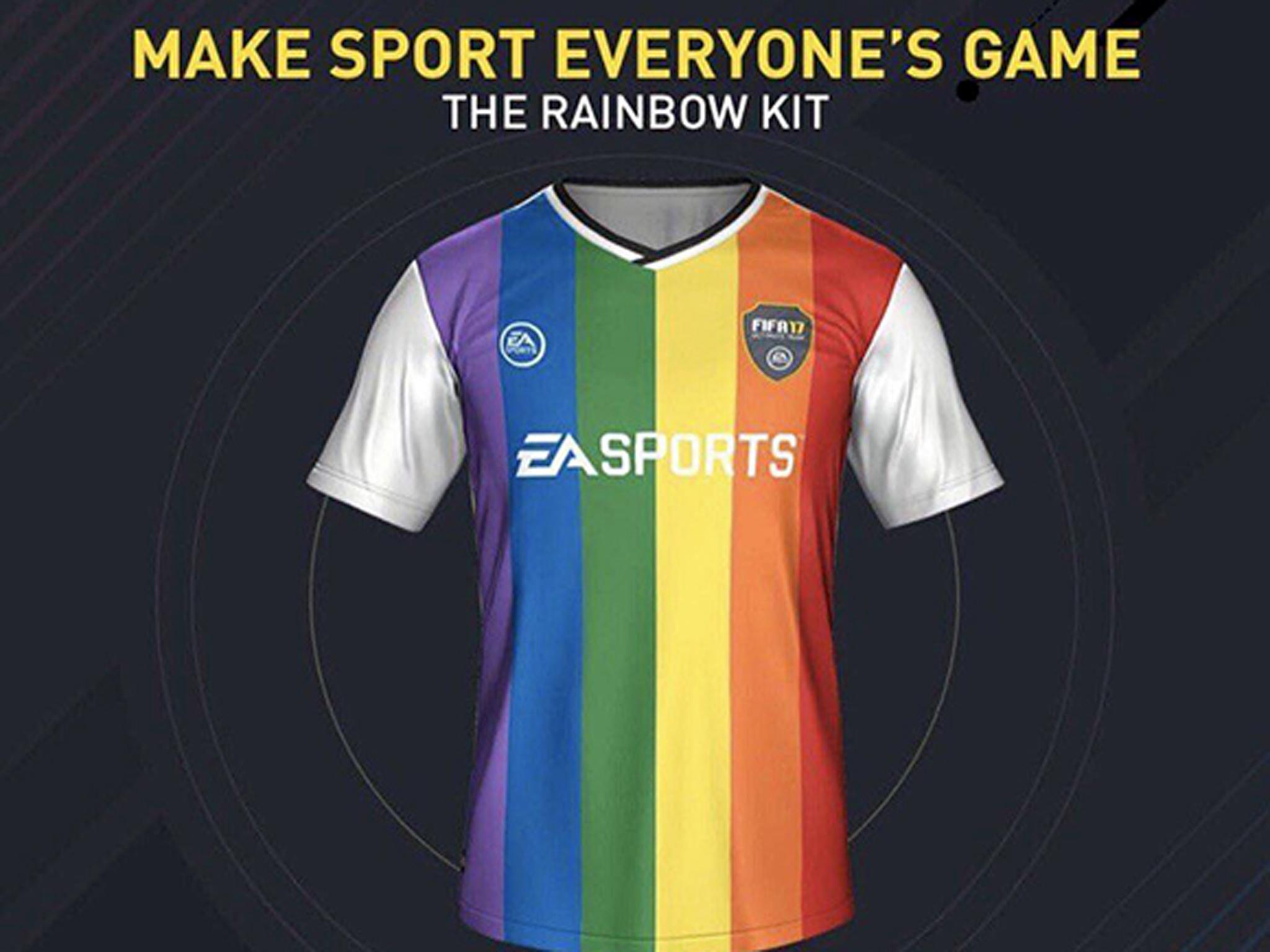Russia could ban FIFA 17 because it is 'too gay'
Russian MPs claim game's support for anti-homophobia campaign may make it illegal

Your support helps us to tell the story
From reproductive rights to climate change to Big Tech, The Independent is on the ground when the story is developing. Whether it's investigating the financials of Elon Musk's pro-Trump PAC or producing our latest documentary, 'The A Word', which shines a light on the American women fighting for reproductive rights, we know how important it is to parse out the facts from the messaging.
At such a critical moment in US history, we need reporters on the ground. Your donation allows us to keep sending journalists to speak to both sides of the story.
The Independent is trusted by Americans across the entire political spectrum. And unlike many other quality news outlets, we choose not to lock Americans out of our reporting and analysis with paywalls. We believe quality journalism should be available to everyone, paid for by those who can afford it.
Your support makes all the difference.FIFA 17 could be banned in Russia after MPs suggested it was responsible for promoting “gay propaganda”.
The game’s manufacturer, EA Sports, recently introduced a feature allowing gamers to choose a rainbow-coloured kit for their virtual players in support of LGBT rights group Stonewall’s Rainbow Laces campaign to combat homophobia in sport.
But Russian MPs have written to the country’s communications watchdog to suggest this is a breach of a 2013 law that banned “gay propaganda”.
In the letter, MPs from the President Vladimir Putin's United Russia Party and the Communist Party wrote: “"The FIFA multiplatform video game, developed by EA Canada, invites users to support the action of the English Premier League’s "Rainbow shoelaces" action - a large-scale campaign in support of the LGBT community.
“Meanwhile, according to the law the ‘protection of children from information harmful to their health and development’…includes information that promotes non-traditional sexual relations.”
Valery Rashkin, a Communist Party MP, told Izvestia newspaper: "It is necessary to verify the computer game FIFA 17 for compliance with the stated age group and [ensure] the game [is] in accordance with Russian legislation".
EA Sports may have to make changes to the game or face "the relevant restrictive measures", Mr Rashkin added.
Russia introduced the controversial "gay propaganda" law in 2013 in the face of widespread international opposition.
Amnesty International told The Independent the criticism of FIFA 17 was the latest example of Russian “intolerance” of gay people.
Denis Krivosheev, the charity’s Europe and Central Asia Deputy Director said: “Given the extremely hostile environment for LGBTI people in Russia, this isn’t entirely surprising but it’s a worrying sign that Russia’s official culture is growing ever more intolerant of all sexual and political non-conformity.
“With the Russian World Cup only 18 months away, it really is time for the authorities to roll back their homophobic legislation and discriminatory practices, and to set about hosting the world’s premier football tournament in a spirit of tolerance and hospitality toward all.”
Stonewall’s Rainbow Laces campaign, which involved footballers being given rainbow-coloured laces to wear during matches, aims to end homophobia in football. There are no openly gay male professional footballers in the UK, despite studies suggesting one in ten British men are gay.
Russia has been widely criticised in recent years for its record on LGBT rights. Same-sex marriage remains illegal in the country and Russian MPs earlier this year debated a new law that would ban “public displays” of gay relationships. A 2013 survey found 74 per cent of Russian people do not believe society should “accept homosexuality”.
Join our commenting forum
Join thought-provoking conversations, follow other Independent readers and see their replies
Comments